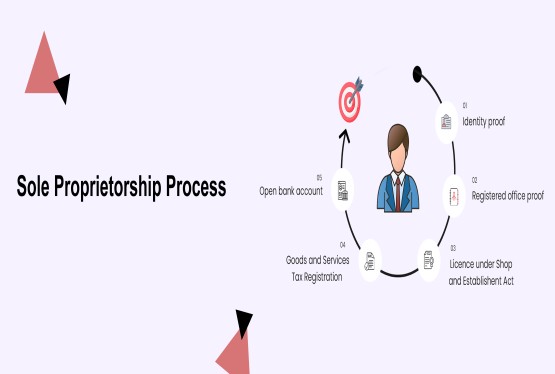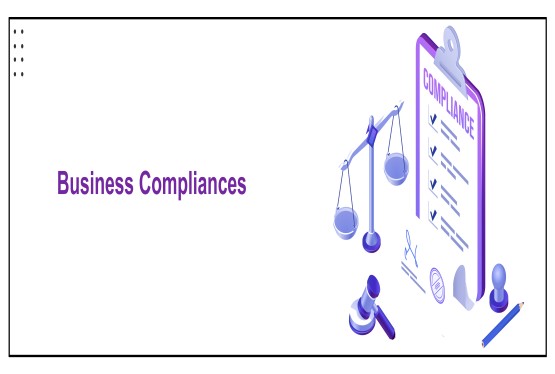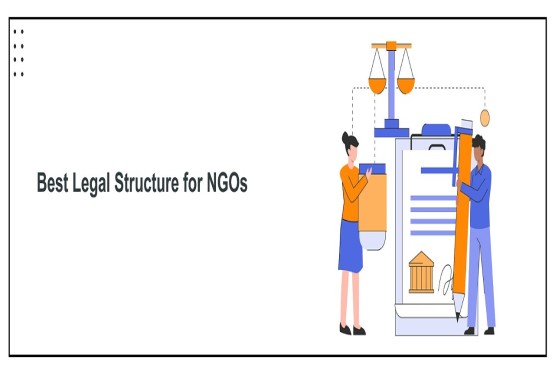India has emerged as a hub of opportunities for foreign investors and entrepreneurs. With a thriving economy, progressive reforms, and a liberalized foreign investment regime, Indian markets are highly attractive to foreign nationals, including those from neighbouring countries like Bangladesh. This article provides a complete guide for Bangladeshi citizens and entities aiming to start and register a company in India, along with a special focus on compliance if the company is treated as a Foreign Subsidiary.
Legal Framework Applicable to Foreign Subsidiary Companies in India
Foreign subsidiary companies are governed under several Indian statutes. The primary legislation includes the Companies Act, 2013, which defines and regulates the incorporation, operation, governance, and closure of companies. In addition, foreign subsidiaries must comply with other applicable laws and sector-specific regulations. These include:
Companies Act, 2013
Under Section 2(42) of the Companies Act, 2013, a foreign company is defined as a company incorporated outside India but having a place of business in India either directly or through an agent. For foreign subsidiaries, registration under the Companies Act is mandatory, and they must comply with various statutory filings, disclosures, and secretarial standards.
Foreign Exchange Management Act (FEMA), 1999
The FEMA regulates the inflow and outflow of foreign exchange and capital into India. Any foreign investment by a Bangladeshi company in its Indian subsidiary must follow the FDI norms, including sectoral caps, automatic vs. approval routes, and reporting requirements to the Reserve Bank of India (RBI). FEMA also mandates that the Indian subsidiary files Annual Return on Foreign Liabilities and Assets (FLA) and other forms concerning foreign remittances.
Income Tax Act, 1961
The foreign subsidiary is treated as a domestic company for tax purposes and is liable to pay taxes on income earned in India. It must comply with Indian income tax laws, including corporate tax, transfer pricing regulations, advance tax, and withholding tax obligations.
Goods and Services Tax (GST), 2017
If the Indian subsidiary engages in supply of goods or services and crosses the threshold turnover, GST registration is mandatory. The company must file GST returns regularly and maintain records as per GST rules.
Labour and Employment Laws
Foreign subsidiaries employing staff in India must comply with applicable Indian labour laws. These include the Minimum Wages Act, Shops and Establishments Act, Payment of Bonus Act, Payment of Gratuity Act, EPF and ESIC regulations, and the Industrial Disputes Act, among others. This ensures the protection of workers' rights and fair employment practices.
Environmental Regulations
If the business activities of the subsidiary involve environmental impact, it must obtain necessary environmental clearances and comply with laws relating to air and water pollution, waste management, and wildlife protection, enforced by bodies like the Central Pollution Control Board (CPCB) or State Pollution Control Boards.
SEBI Regulations
In case the foreign subsidiary plans to list securities or interact with capital markets in India, compliance with the Securities and Exchange Board of India (SEBI) regulations becomes necessary. SEBI governs listing obligations, disclosures, insider trading rules, and takeover codes.
Intellectual Property Laws
Protection of brand identity and innovation is important. Foreign subsidiaries must ensure that their trademarks, patents, and copyrights are registered under Indian IPR laws, governed by the Controller General of Patents, Designs and Trademarks.
Types of Business Entities Available for Bangladeshi Investors
When a Bangladeshi national or company seeks to enter the Indian market, choosing the right business structure is a important first step. India offers several forms of business entities suited for varying operational scopes, compliance levels, and investment goals. However, since Bangladesh is categorized as a country sharing a land border with India, investments from its nationals or entities attract additional scrutiny and require government approval under the FDI policy.
Private Limited Company
The most preferred form of business structure among foreign investors, including those from Bangladesh, is the Private Limited Company. This structure is favoured due to its distinct legal identity, limited liability for shareholders, the capacity to raise funds, and a well-regulated corporate governance framework under the Companies Act, 2013.
To establish a private limited company, a minimum of two directors is mandatory, out of which at least one must be an Indian resident. The company must also have at least two shareholders. The maximum limit of shareholders for a private limited company is capped at 200. Foreign Direct Investment (FDI) is allowed in a private limited company either through the automatic route or with prior government approval, depending on the sector. For Bangladeshi investors, government approval is compulsory irrespective of the sector due to their geopolitical categorization.
Limited Liability Partnership (LLP)
The Limited Liability Partnership is another viable business structure that combines the operational flexibility of a partnership with the limited liability feature of a company. It is governed by the Limited Liability Partnership Act, 2008, and is particularly useful for professional services and small-to-medium enterprises.
FDI in LLPs is permitted through the automatic route only in sectors where 100% FDI is allowed and there are no performance-linked conditions. However, since Bangladesh falls within the list of countries that require prior approval, a Bangladeshi investor must obtain clearance from the Department for Promotion of Industry and Internal Trade (DPIIT) and other competent authorities before investment. This extra step makes the LLP structure slightly less attractive unless the operational needs specifically demand it.
Branch Office, Liaison Office, or Project Office
Bangladeshi companies not looking for full-scale incorporation may opt to establish a Branch Office, Liaison Office, or Project Office in India. These entities serve different purposes and are governed by RBI’s Foreign Exchange Management (Establishment in India of Branch Office or Other Place of Business) Regulations, 2016.
-
A Branch Office can engage in commercial activities permitted under Indian law, such as export/import of goods, consultancy services, or research.
-
A Liaison Office acts merely as a representative office and cannot undertake any commercial or revenue-generating activity. Its role is limited to promoting the parent company’s interests and establishing communication channels.
-
A Project Office can be set up if a Bangladeshi company has secured a contract from an Indian entity for a specific project.
All three forms require prior approval from the Reserve Bank of India (RBI) and security clearance from the Ministry of Home Affairs (MHA). These are not considered separate legal entities but extensions of the foreign parent company.
Foreign Subsidiary Company in India
A Foreign Subsidiary is a company incorporated in India under the Companies Act, 2013, where 50% or more of the shareholding is owned by a foreign entity in this case, a company based in Bangladesh. Once incorporated, the Indian company is considered a subsidiary, while the Bangladeshi company becomes its holding company. Despite being controlled by a foreign entity, the Indian subsidiary is a distinct legal person domiciled in India and subject to Indian laws.
Legal Status and Incorporation
To establish a foreign subsidiary, the incorporation process follows the same steps as for any Indian company, including application for Director Identification Number (DIN), Digital Signature Certificate (DSC), reservation of the company name, filing of the Memorandum of Association (MOA) and Articles of Association (AOA), and registration with the Ministry of Corporate Affairs (MCA). However, the foreign shareholding and Bangladeshi origin of the investor must be declared during the incorporation process.
As Bangladesh falls under the restricted FDI category, prior government approval is necessary before any shareholding transfer or capital infusion is made by the Bangladeshi parent company. The RBI, MHA, and DPIIT jointly review such applications with a focus on national interest and sector-specific sensitivity.
DIN Security Clearance and Security for Bangladeshi Nationals Incorporating a Company in India
When a Bangladeshi national seeks to incorporate a company in India, obtaining a Director Identification Number (DIN) is a mandatory step for becoming a company director under the Companies Act, 2013. However, due to national security protocols, applications from nationals of Bangladesh are subject to additional scrutiny. The DIN application must be accompanied by prior DIN security clearance from the Ministry of Home Affairs (MHA), Government of India. Without this clearance, the DIN will not be approved. This safeguard ensures that only individuals with legitimate business intent and no adverse security background are allowed to become directors in Indian companies. Therefore, Bangladeshi applicants must plan for extended processing times and coordinate with the relevant authorities to ensure all background verifications are completed before incorporation can proceed.
Compliance Requirements for a Foreign Subsidiary
A foreign subsidiary in India is subject to a complete compliance framework, which varies based on factors such as:
Nature of Business
The regulatory compliance burden depends heavily on the sector in which the subsidiary operates. For example, sectors like defence, telecom, broadcasting, and finance are considered sensitive and have additional licensing and reporting obligations.
Annual Turnover
If the turnover crosses specified thresholds (as notified under various provisions of the Companies Act or Income Tax Act), additional requirements such as statutory audits, appointment of internal auditors, or filing of cost audit reports may apply. Larger subsidiaries must also comply with transfer pricing rules and furnish a 3CEB report under the Income Tax Act.
Number of Employees
The size of the workforce directly impacts obligations under Indian labour laws. Companies employing more than 10 or 20 workers are required to comply with statutes such as the Factories Act, Employees’ Provident Funds and Miscellaneous Provisions Act, Employees’ State Insurance Act, Payment of Gratuity Act, and others. These apply equally to foreign subsidiaries.
Sector-Specific Regulations
Foreign subsidiaries may also have to comply with rules set by regulatory authorities such as the Insurance Regulatory and Development Authority of India (IRDAI), Securities and Exchange Board of India (SEBI), or Telecom Regulatory Authority of India (TRAI) depending on the sector.
Mandatory Registrations for a Foreign Subsidiary
Incorporation with Registrar of Companies (ROC)
The Indian entity must be incorporated under Chapter XXI of the Companies Act, 2013, which deals with foreign companies. A digital signature, Director Identification Number (DIN), and an Indian address are required.
PAN and TAN Registration
PAN (Permanent Account Number) and TAN (Tax Deduction and Collection Account Number) are mandatory for:
-
Filing income tax returns
-
Deducting TDS (Tax Deducted at Source)
GST Registration
If the company’s turnover exceeds the prescribed limit or it deals in taxable interstate supply, GST registration is mandatory.
Import-Export Code (IEC)
If the company is involved in import/export activities, it must obtain an Import Export Code from the Directorate General of Foreign Trade (DGFT).
Labour Compliance Registrations
-
EPFO: For Provident Fund contributions
-
ESIC: For employee insurance if applicable
-
Professional Tax: As per the respective state law
Industry-Specific Licenses
Depending on the sector, the subsidiary may require:
-
SEBI/IRDAI/Telecom/Pharma approvals
-
FSSAI license for food industry
-
Drug License for pharmaceuticals
-
RBI approvals for NBFCs
Taxation and Financial Compliance
A foreign subsidiary must comply with all taxation laws applicable to domestic companies, including:
-
Corporate tax returns
-
Advance tax payments
-
Transfer pricing compliance and documentation (especially when dealing with the parent company)
-
TDS deductions and filings
-
Annual audit and filing of Form 3CD with tax authorities
Additionally, Form FC-GPR must be filed with the RBI for reporting FDI, and Form FLA must be filed annually.
Penalties for Non-Compliance by Foreign Subsidiaries
Failure to comply with the legal framework can lead to serious consequences, such as:
Monetary Penalties
-
Delay in ROC filings, GST returns, or income tax filings results in heavy late fees and interest.
-
Violation of FEMA can lead to penalties up to three times the sum involved.
Legal Consequences for Directors
Directors can face prosecution, fines, and even disqualification under various statutes.
Suspension or Cancellation
Government bodies may suspend or revoke licenses, GST numbers, or even strike off the company from the ROC register.
-
Injunctions: Courts may restrain the company from carrying out certain activities until compliance is rectified.
Criminal Liability
In cases of serious fraud or repeated non-compliance, imprisonment and criminal prosecution can be initiated.
-
Blacklisting: Companies with persistent non-compliance can be blacklisted, affecting their ability to carry out any future business in India.
Repatriation and Exit Strategy
Once profits are generated, the Bangladeshi parent company can repatriate dividends or capital, subject to:
-
Payment of applicable taxes (Dividend Distribution Tax is now abolished, but TDS applies)
-
RBI guidelines on outward remittance
-
Filing of required forms (e.g., Form A2)
In case the parent company wishes to shut down the subsidiary, voluntary winding up or fast-track exit under Section 248 of the Companies Act may be followed.
Conclusion
A foreign national or company from Bangladesh can legally and successfully establish a business in India by complying with Indian laws, sector-specific guidelines, and government approval requirements. Understanding the regulatory framework for a Foreign Subsidiary, including mandatory registrations, taxation, labour compliance, and FDI restrictions, is crucial for smooth operations.
To avoid penalties, reputational harm, and business disruption, it is advisable to engage qualified chartered accountants, company secretaries, and legal professionals familiar with cross-border compliance and Indian corporate laws.
FAQs
Q1. Can a Bangladeshi entity or citizen incorporate a company in India?
Ans. Yes, a Bangladeshi entity or citizen can incorporate a company in India. However, since Bangladesh shares a land border with India, the investment must be routed only through the Government Approval Route as per the FDI policy. Prior permission from the Department for Promotion of Industry and Internal Trade (DPIIT) and the Ministry of Home Affairs (MHA) is mandatory.
Q2. What is the most common form of company structure used by Bangladeshi investors in India?
Ans. The most common and preferred structure is a Private Limited Company, as it offers limited liability, legal recognition, and allows 100% foreign ownership subject to approval. Other options include LLPs, Wholly Owned Subsidiaries, and Branch or Liaison Offices, depending on the business objective and permissible FDI conditions.
Q3. What are the prerequisites before initiating the incorporation process in India?
Ans. Before initiating incorporation, the following must be ensured:
-
Obtain FDI approval from the DPIIT and MHA under the government route.
-
Appoint at least one resident director who has stayed in India for at least 182 days in the preceding financial year.
-
Apply for Digital Signature Certificates (DSC) for proposed directors.
-
Choose a unique company name and obtain approval via the RUN (Reserve Unique Name) form.
-
Draft the Memorandum of Association (MOA) and Articles of Association (AOA).
Q4. What are the steps involved in registering a private limited company in India by a Bangladeshi entity?
Ans. The procedure generally includes the following steps:
-
Obtain FDI approval from DPIIT and security clearance from MHA.
-
Apply for Digital Signature Certificates (DSCs) for directors.
-
File SPICe+ (INC-32) form along with e-MOA and e-AOA.
-
Obtain Director Identification Number (DIN) if not already allotted.
-
Upload required documents such as proof of identity, address, and NOC.
-
Once approved, obtain the Certificate of Incorporation (COI) from the Registrar of Companies (ROC).
-
Apply for PAN, TAN, and open a bank account in India.
Q5. Is there any restriction on the sector in which a Bangladeshi company can invest in India?
Ans. Yes. Investments are not allowed in certain prohibited sectors such as:
-
Atomic energy
-
Railway operations (excluding specific PPP projects)
-
Lottery and gambling
-
Real estate (other than construction development)
For all other sectors, investment is subject to FDI limits and sector-specific guidelines. In addition, investments by Bangladeshi entities are permitted only after receiving prior government approval, even if the sector is under the automatic route for other foreign investors.
Q6. How long does it take to incorporate a company in India for a Bangladeshi investor?
Ans. Incorporation timelines vary depending on the time taken for FDI and security clearance, which may take several weeks to months. Once the approvals are obtained, the company registration through the MCA portal generally takes about 7–10 working days, provided all documents are in order
Q7. What documents are required from the Bangladeshi entity for incorporation in India?
Ans. The following documents are typically required:
-
Copy of passport (certified and apostilled) of directors/shareholders.
-
Proof of registered office address in India.
-
No Objection Certificate (NOC) from landlord (if office is rented).
-
Board resolution authorizing investment and appointment of directors (if applicable).
-
Incorporation documents (e-MOA, e-AOA, SPICe+ form, etc.).
-
Identity and address proofs, photographs of directors.
-
FDI approval letters from DPIIT and MHA.
Q8. Can the company be 100% owned by Bangladeshi shareholders?
Ans. Yes, 100% foreign shareholding is allowed in many sectors, subject to prior government approval for Bangladeshi investors. The company must comply with sectoral caps and conditions laid down by the FDI policy and any applicable licensing or regulatory norms.
Q9. Is physical presence required during incorporation?
Ans. No, the process is largely digital and can be completed online through the MCA portal. However, having a local resident director and a registered office address in India is mandatory. Physical presence may be required for bank account opening and notarization of certain documents, based on the bank’s KYC norms.
Q10. What approvals are required apart from company registration?
Ans. Apart from incorporation with the Registrar of Companies, the Bangladeshi entity must also:
-
Obtain FDI approval from DPIIT and security clearance from MHA.
-
Comply with FEMA regulations and RBI reporting.
-
Get sector-specific approvals if required (e.g., IRDAI for insurance, SEBI for finance).
-
File Form FC-GPR with RBI after receiving foreign investment.
-
Register under GST, Shops & Establishments Act, or other local laws based on the business activity.
Q11. Are there any post-incorporation compliance requirements?
Ans. Yes. After incorporation, the company must:
-
Open a bank account and bring in foreign capital.
-
File FC-GPR for foreign remittance within 30 days.
-
Conduct the first board meeting within 30 days.
-
Appoint an auditor within 30 days.
-
File annual returns and financials with the Registrar of Companies (ROC).
-
Maintain statutory registers and books of accounts.
-
Comply with tax laws, GST, TDS, and labor law registrations as applicable.












_crop10_thumb.jpg)





_crop10_thumb.jpg)




























-Form_crop10_thumb.jpg)

_crop10_thumb.jpg)























_learn_crop10_thumb.jpeg)
































_crop10_thumb.jpg)

_crop10_thumb.jpg)





















_crop10_thumb.jpg)















_for_Foreign_Directors_learn_crop10_thumb.jpeg)




_Act,_2015_learn_crop10_thumb.jpg)



































_learn_crop10_thumb.jpg)








































